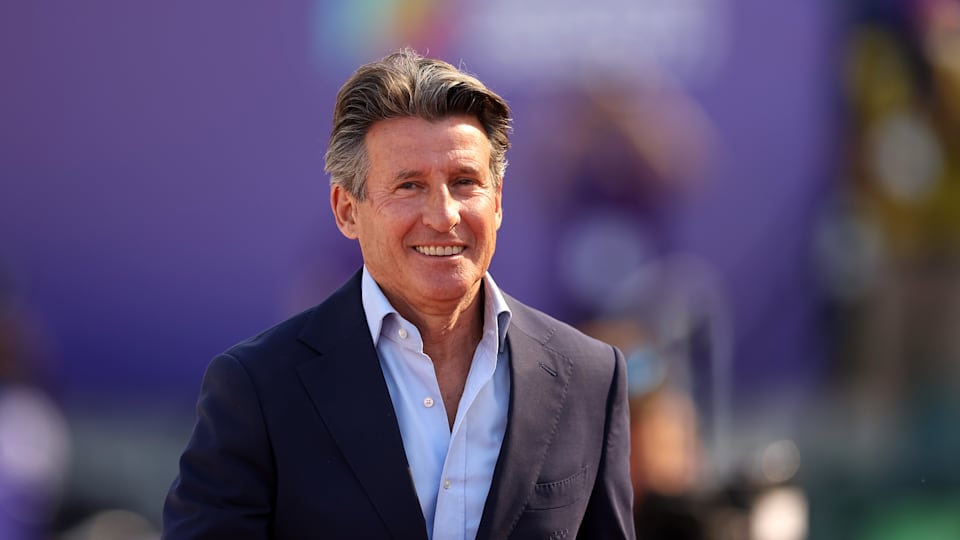World Athletics President Sebastian Coe on upcoming changes to track and field
Speaking exclusively to Olympics.com, Coe addressed some of the pressing issues that his sport faces today: from new competition formats and cross-pollination with other codes to the impact of menstruation on female performance.

World Athletics is exploring ways to breathe new life into its flagship track and field meetings, including introducing a repechage round to all individual track events from 200m to 1500m, including the hurdles events, for the Paris 2024 Olympic Games.
Coe told Olmpics.com that World Athletics believed repechages could ensure the top athletes reach the finals, giving fans gripping contests while providing broadcasters more opportunities to showcase the sport.
"We were persuaded by both our broadcast teams and our competition teams that we need more content, particularly during our morning sessions," Coe said
"We need to give our athletes the opportunity to compete as often as they possibly can. And head to heads are really important. So if you lose the opportunity of a top head-to-head at a later phase in the competition because something may not have gone that well in the heat, it gives you the opportunity to have more content, more broadcastable time, and certainly giving the athletes the opportunity to progress through the programme."
The repechage format effectively provides athletes who fail to make it past the first round of heats by place, a second chance at redemption. These athletes will battle it out in the repechage heats for a shot at qualifying for the semi-finals.
The format will replace the former system where some athletes who don't automatically qualify by finishing in the top placings in their heat, advance through courtesy of running the fastest times, sometimes known as 'lucky losers'. The designated events will consist of four rounds – heats, repechage rounds, semi-finals, and the final.
Speaking to us on the sidelines of the 2022 ISA World Surfing Games in Huntington Beach, California, Coe said he was looking at learnings from other sporting codes that could be adopted for athletics. The Briton, who won two Olympic gold medals in the men's 1500m, took some inspiration from the surf event's traditional Sands of the World ceremony. A member from each nation poured sand from their local beach into a single container symbolising the peaceful gathering of 51 countries through the sport.
"You should always be open to new ideas, whether it's about opening ceremonies or sports presentation or just the way you engage local communities. None of us is the fount of all wisdom on that," Coe said.
"There are things that I'm sure people come to World Athletics Championships and watch and think, 'Oh well, I might utilise that this year'. I've been to the World Swimming Championships, to the World Surf Championships, and just a year or two ago, I went to a lot of the Nordic sports because they're doing some interesting things with social media, engaging local communities and certainly in sports presentation."
While the track and field governing body was exploring ways to appeal to new audiences and breathe new life into the sport, its flagship biennial world championships have delivered some positive results.
The past two world championships in Doha 2019 and Eugene 2022 (delayed from 2021 due to the Covid pandemic), were among the best in terms of performance, according to Coe.
"It (Eugene) was the most global championships we've ever had. More medals won by more countries. And on the first day, just to identify the true global nature of our sport, we're celebrating medals from Peru and the Dominican Republic," Coe said.
"There aren't too many sports that are going to have that bandwidth of countries that are involved."
Coe credited the athletes for overcoming the challenges brought about by the global pandemic and performing beyond expectations at the Tokyo 2020 Olympic Games and this year's world championships.
"The one watchword throughout all this has been athletes and the resilience, the forbearance, the ability for them to focus on the last two or three years," he said.
"And the performances during the COVID recovery period have actually been in advance of what we were witnessing in the lead-up to COVID."
Coe rubbed his hands with glee over the prospect of the current crop of young stars of the sport raising the bar at next year's World Championships in Budapest, and at the Paris 2024 Olympics.
"I just really am looking forward to seeing the athletes. 25 percent of our athletes that are competing at world championship level, and are medallists in our major championships, are under the age of 25," he said.
"So, you know, we've got people like Mondo (Armand) Duplantis, Sydney McLaughlin, you know, Mutaz (Barshim), fantastic athletes like that, that are going to be around for a year or two, God willing."
Athlete welfare, particularly the effect of menstrual cycles on female performances, is receiving increasing attention in track and field. The topic recently received renewed scrutiny after British athletes Dina Asher-Smith, and Eilish McColgan highlighted the effects of periods during competitions and training.
Coe said he had tasked World Athletics' internal health and science teams to look into existing research on the effects of menstrual cycles on female performances, which could lead to the development of guidance for athletes and coaches.
"We are a 50:50 sport, and that's one thing we have always prided ourselves on. I've asked the health and science teams to actually just look at what research is out there," Coe said.
"If it's out there, how can we help disseminate it in a more constructive and fluent way to our competitors and also have our competition teams look at this as an issue as well? I'm sure they'll come back in the next few weeks with some peer-reviewed research work for me."
